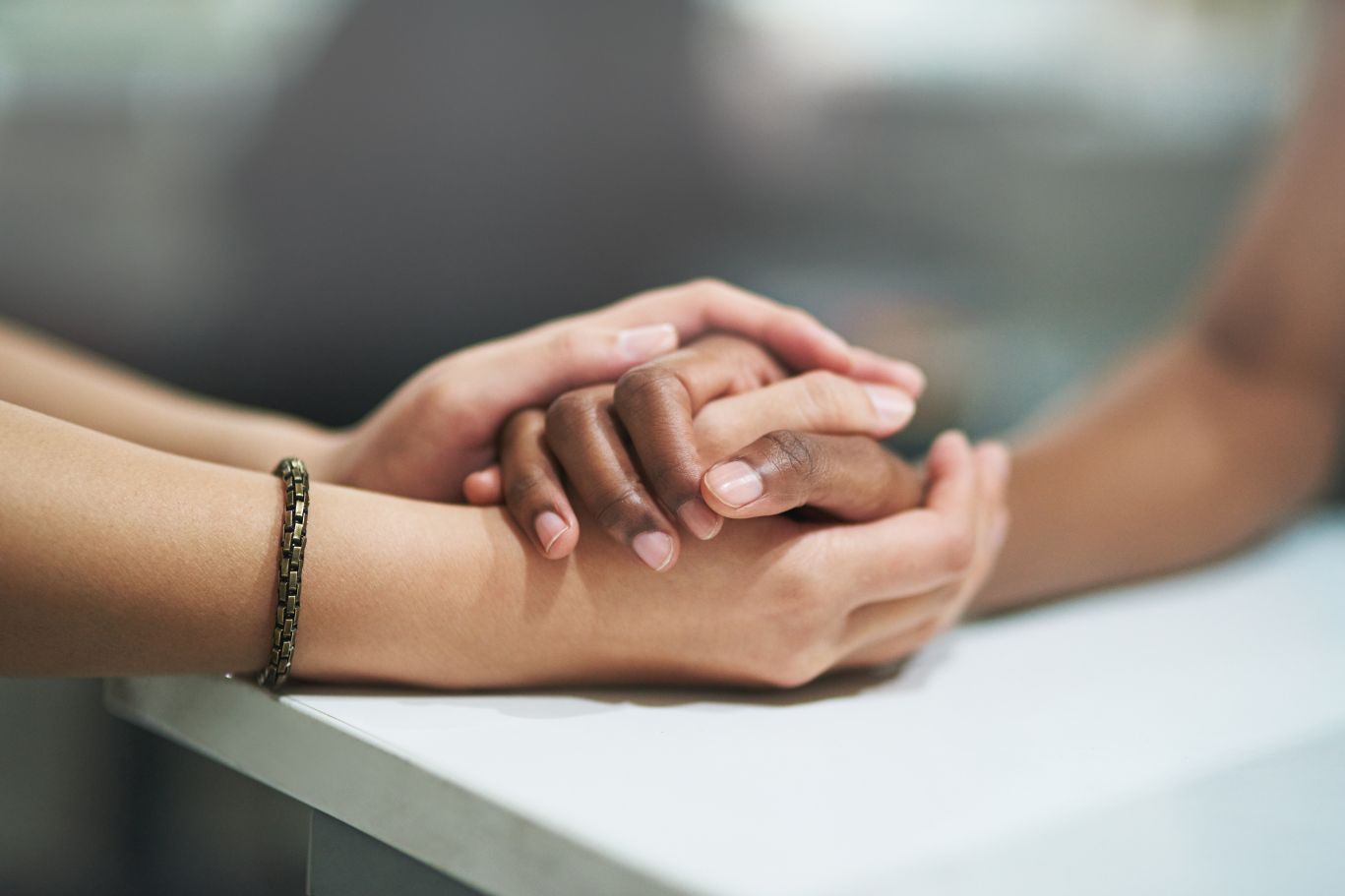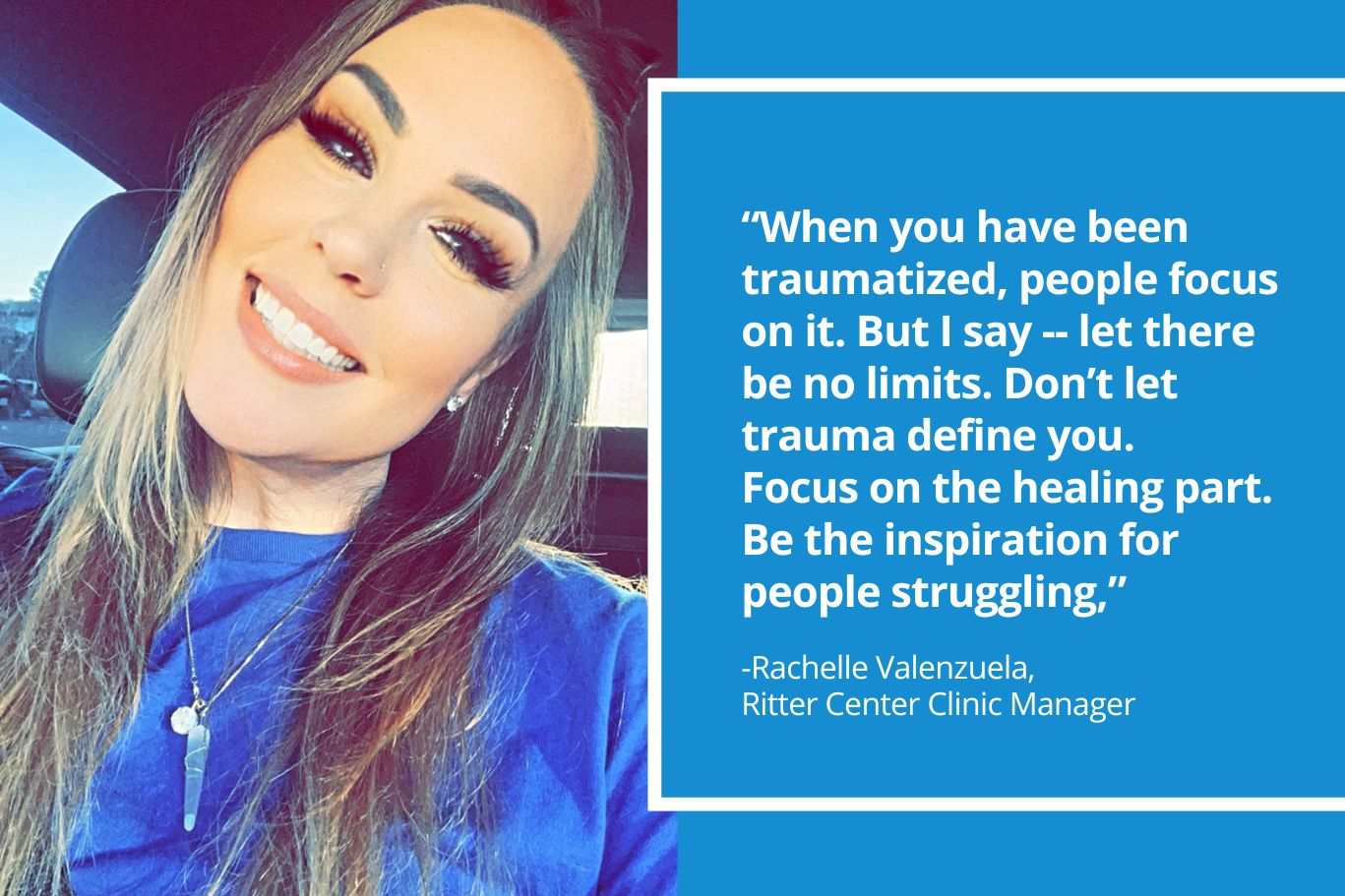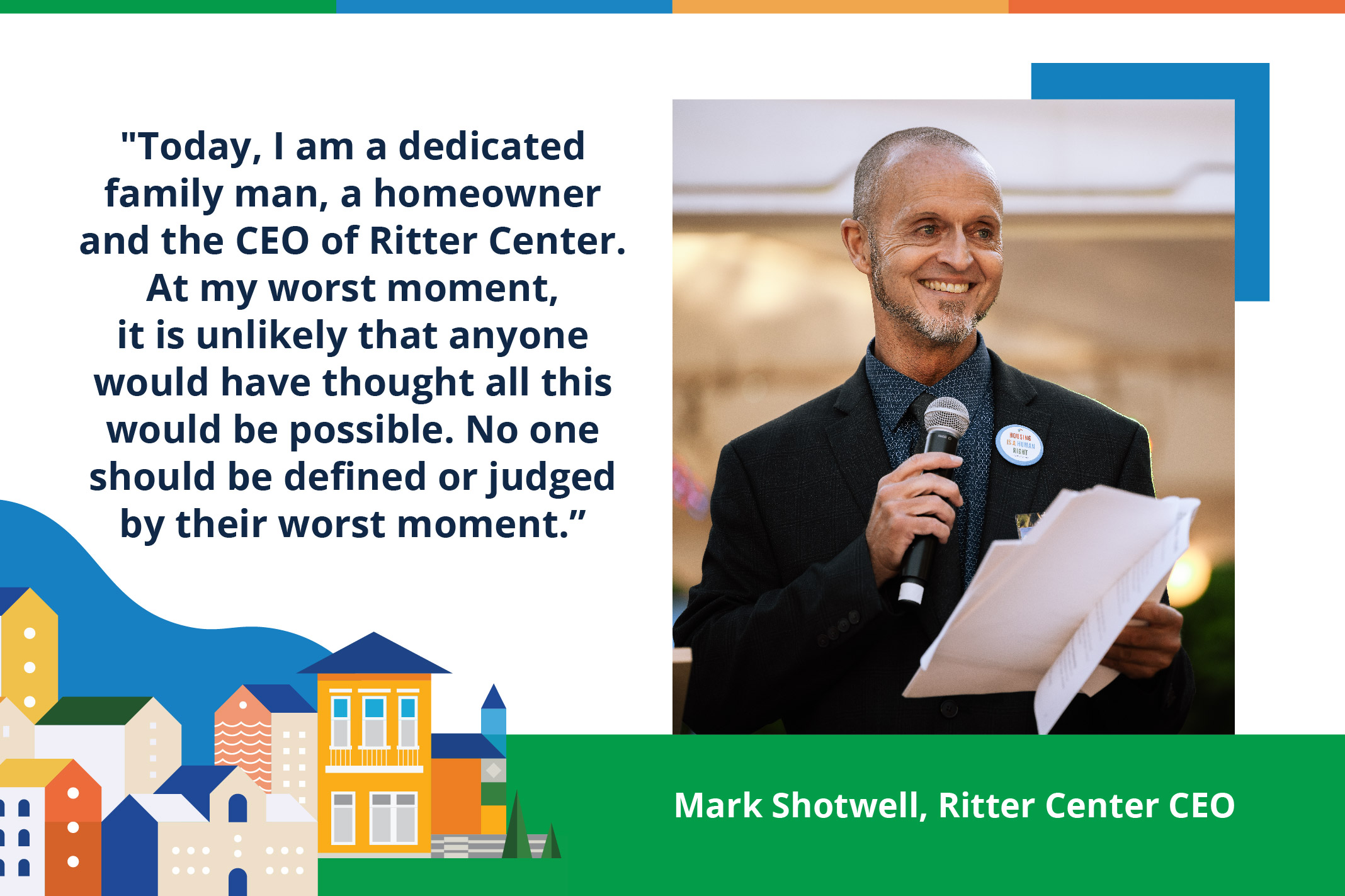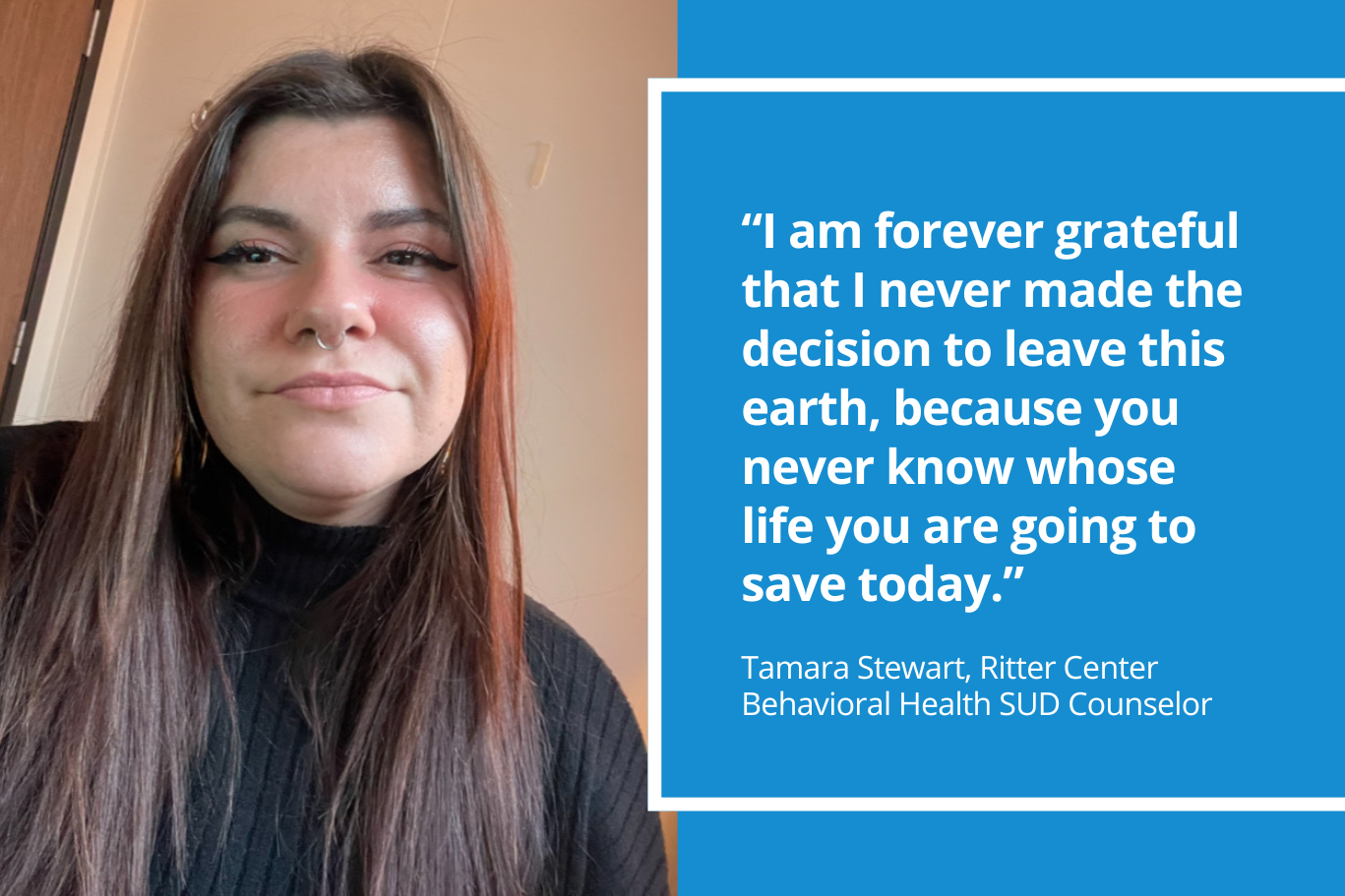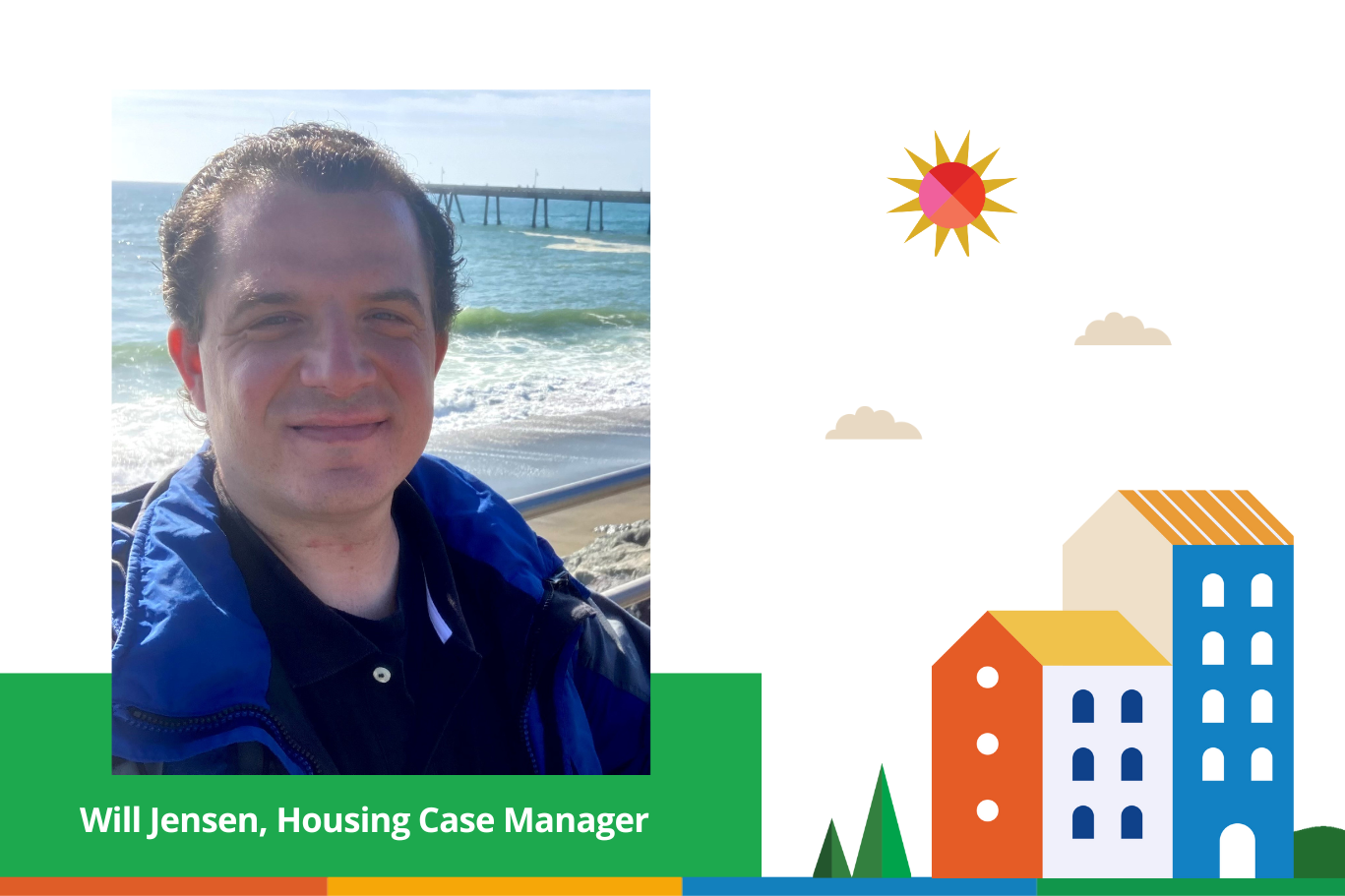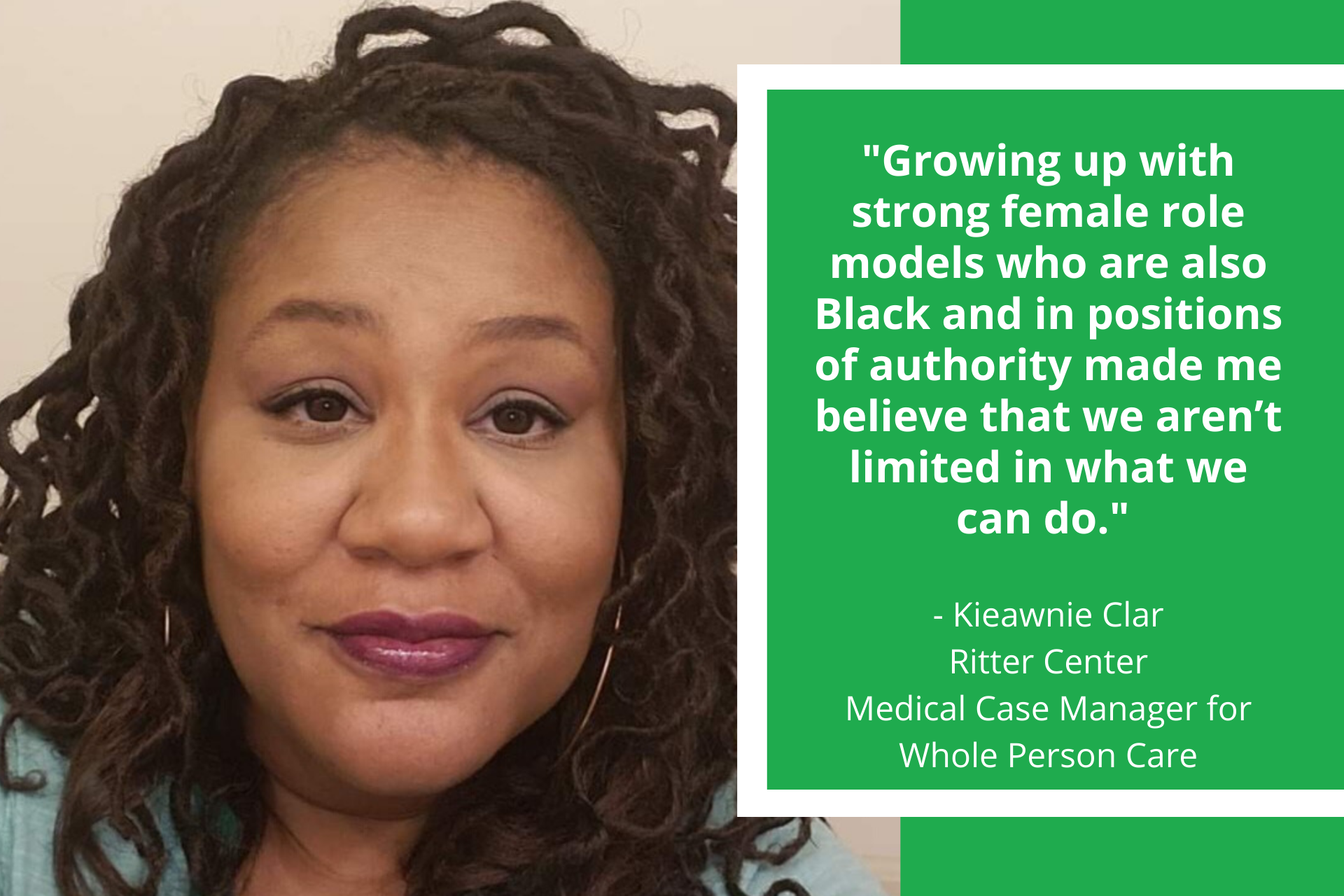
“Marin creates strong women. Indeed, Marin breeds strong women” – Kieawnie Clar, Ritter Center Medical Case Manager
“It is ironic to think of Anne Bancroft playing a Native American as we talk about Black History Month and Women’s History Month,” said Kieawnie. “In some ways, it is a different world, and in other ways, not so much.”
Kieawnie Clar is Ritter Center’s Medical Case Manager for Whole Person Care. Her name is beautiful and unique. It came from her mother watching the movie “Walk The Proud Land” starring Anne Bancroft playing a Native American. The character’s name was Tianay, and Kieawnie’s mom took her inspiration from that.
Kieawnie provides case management for higher need individuals who are medically fragile and in acute situations, often in conjunction with substance abuse and behavioral health issues.
“It is difficult for these patients to manage their own care. This might mean things like getting to doctors’ appointments or interpreting what staff has said. We can help to coordinate transportation to schedule MRIs and order medications.
“My medical case management has a much smaller ratio than many others on staff because giving the proper support is very complicated and time and labor-intensive,” explained Kieawnie. “These individuals are all currently housed, but all were formerly unhoused. Some level of independence is the goal. My role at Ritter Center is enhanced by my extensive background in the medical field. I helped to run a pediatric practice for over a decade. I enjoy providing the same concierge-like care now to my clients that I used to provide to patients in Greenbrae. This is something many of them have not experienced.“
Kieawnie grew up Black in Marin, attending Saint Raphael’s Mission Catholic School in downtown San Rafael. She wasn’t overly aware of being in the minority. Perhaps because she had three siblings in school with her. It more came to light for her at Marin Catholic High School.
“There were a small number of LatinX, Eritreans, and Haitians at my school. One thing that increased my awareness was that it was the nineties: the Malcolm X movie; Rodney King; and other events,” she recalled.
Having the opportunity to be mentored by strong Black women in the community like her mom and family friends who were serving in the roles of deputy probation officer, social worker at Child Protective Services, and others meant that she didn’t have a concept that she was limited in any way.
“I was raised knowing that I could do anything. Growing up with that instilled in me was such a gift,” recalled Kieawnie. “My mom got her doctorate in multicultural education during that time period, too.”
“But at the same time, as a loving aunt and family member, I’m all too aware of the inherent dangers of my nephews in their young adulthood. A Black man growing up in a white community is hard. In the past few years, the concern for all the black males in my family has skyrocketed. However, I am especially concerned about them as they are just learning to navigate their way in the world. It is challenging in white areas or any area. In Marin, many assume that if you are Black, you are from Marin City. That just isn’t true. I lived in Ignacio/Pacheco Valley growing up. We all have biases and can all struggle with not always being aware. In my family, my husband is white. Many of the people in our family are in interracial relationships or are biracial children. The challenge for society right now is that people are still grounded in the fear that others will take something from them. But the positive of months like Black History Month and Women’s History Month is that we can raise awareness,” said Kieawnie.
“Marin creates strong women. Indeed, Marin breeds strong women. It is built right into us. Growing up with strong female role models who are also Black and in positions of authority made me believe that we aren’t limited in what we can do. The potential is huge.”
“My friends and family joke – “You can take a girl out of Marin, but you can’t take Marin out of the girl.”
